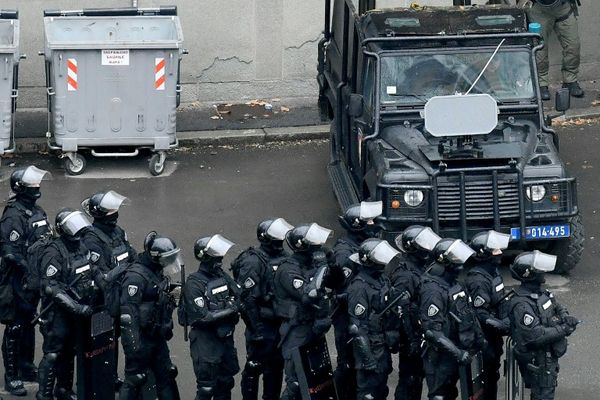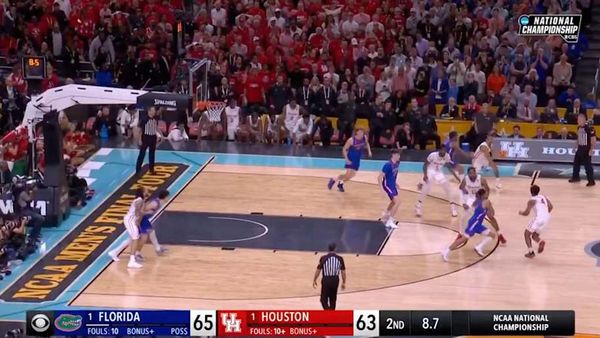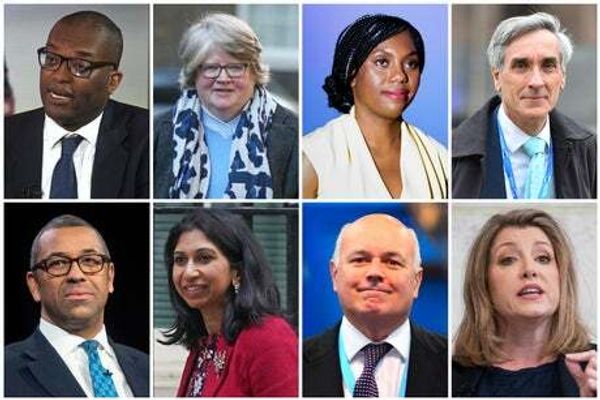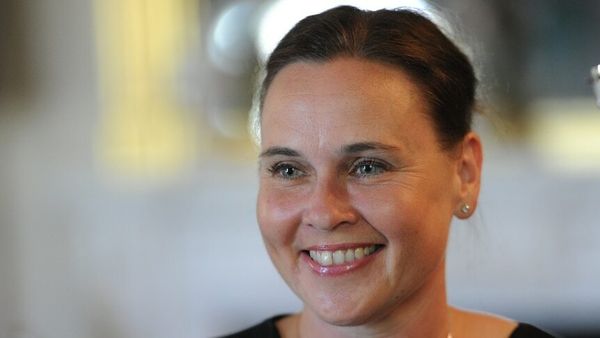Two members sitting on opposite sides of Papua New Guinea's parliament are making waves after the country's most recent election.
They were the first women voted into PNG's 118-seat parliament in five years.
Kessy Sawang and Rufina Peter may be serving different constituents and different parties, but they share a bond.
The pair met up last week for the first time since being voted in and embraced in a tight hug.
The return of women to the Parliament has been welcomed, but they still make up less than 2 per cent of MPs in PNG.
And their success has reignited debate around how best to increase female representation in parliament.
PNG's election went down to the wire
As PNG's more-than-month-long election was drawing to a close, there were fears it may result in another all-male parliament.
That was until Ms Peter was declared the new Governor of Central Province late on a Friday night, just days ahead of the first sitting day.
"It has been a struggle for women and just to be there, it's very significant. For that reason, I'm very happy," she told the ABC.
As she celebrated her win, Ms Sawang was still waiting on counting to be completed in her electorate. She took to Facebook to congratulate her fellow candidate.
"In [the 2017 election], both of us were the last two women standing and we bowed out of the race in third place," she wrote.
"We resolved that we [would] work on our strategies for the next five years and go all out in 2022."
On the first sitting day of the new parliament as the new MPs were sworn in and James Marape was returned as Prime Minister, counting in Ms Sawang's electorate on the other side of the country finished.
There would be a second woman in parliament.
"It still hasn't really sunk in yet," Ms Sawang laughs.
"My friends call me by my nickname Kez and then they realise 'OK, we have to call you Honourable Kessy Sawang'."
As she joins the government, Ms Sawang says her focus is on improving the lives of people in her Rai Coast electorate by providing basic services like water and electricity and improving law and order.
But as one of only two women in the House, there is added pressure.
"I represent my people, the Rai Coast people, but because I am a woman and there's only two of us there's already Papua New Guineans saying we represent the voices and aspirations of Papua New Guinean [women].
"I'm happy with that, I'm OK with that."
Ms Peter similarly has a list of issues she wants to address in her region, but also has an eye on the many problems women face in PNG.
"One of the important issues is gender-based violence, there's also the lack of treatment for women with [breast and cervical] cancer," she said.
PNG has elected nine women since independence
The two MPs become the eighth and ninth women elected since PNG gained independence in 1975.
Ms Peter will serve in opposition while Ms Sawang will be in government, but the pair say they will "definitely" work together.
Their time in parliament is expected to be heavily scrutinised.
Ms Peter says more work is needed to change many people's perceptions "that women aren't good leaders, are not effective political leaders".
Australian Foreign Minister Penny Wong met with Ms Peter and Ms Sawang on Tuesday, carving out time during a diplomatic visit to Papua New Guinea and Timor Leste.
Senator Wong said Australia was pleased to see women more involved in political leadership in Papua New Guinea after the latest election.
"I believe that we need to harness the talents of our whole community, and that communities are stronger when we do that," Senator Wong said.
"So while these are ultimately decisions for Papua New Guineans and for your democracy, we are really pleased to see two women involved in that level of leadership."
'Vote Women for Change': Female leaders back the new MPs
One of PNG's best-known former MPs, Dame Carol Kidu, mentored both women and several others who stood in the election.
Last year Dame Carol conducted community workshops in eight electorates where women who had polled well in the 2017 election were standing again.
The Vote Women for Change program, which focused on educating voters about representation in parliament, was funded by the Australian National University and the Australian government.
The eight women in those seats continued to support one another through campaigning, voting, and counting.
They traded messages and advice in a WhatsApp group, urging one another on. The fact that they came from different political parties was pushed aside by their shared experience as female candidates.
At the end of the election, the group came back together at a beach outside Port Moresby to debrief, plan for the next five years, and to talk about how they can all continue to support the two women who made it across the line.
"We need a balance to get a decent future for Papua New Guinea, I don't see a good future for Papua New Guinea with no women in parliament," Dame Carol said.
"I'm not saying women are better than men, and there are some very good men in parliament, but we need a balance."
Dame Carol points to Rwanda as an example, which now holds the title of highest representation of women in any national parliament.
Following the brutal genocide in the 1990s, Rwanda wrote quotas into its new constitution in 2003, mandating that a third of seats must be reserved for women. Today, 49 of the 80 Lower House seats are held by women.
Dame Carol says corruption decreased and development improved as more women were elected in Rwanda.
She believes it has become harder for women to be elected in PNG in the years since she left parliament.
'Two is not enough, we need a critical mass'
Reviews of previous elections have found that female candidates are particularly disadvantaged by the corruption, violence, and money politics in PNG's elections.
Ms Sawang says more female MPs are needed.
"Two is not enough, we need a critical mass," she said.
There had been a plan to introduce reserved seats for women, but the Prime Minister has now ruled that out.
"Women can win on merit — we don't need special seats for women," Mr Marape said.
"If women want to contest, this coalition, led by Pangu Party, gives an assurance for a better electoral process in 2027."
The idea of reserving seats for women has been divisive, with some female leaders supporting it as a way to change attitudes, while others are concerned it may diminish the standing of women in parliament.
When asked if other measures would be considered, Mr Marape instead focused on Australia's record.
"It took 40 years for Australia to produce its first female member of parliament, it took three years for Papua New Guinea to produce two members of parliament. Never forget this," he told the ABC.
As the two new MPs begin their political journey, Dame Carol has sounded something of a warning.
"They are very, very competent women — I would say they are stateswomen. But it's going to be very hard for them, the atmosphere in parliament is not gender friendly," she said.
"But I have every confidence they are going to cope with the difficulties."










